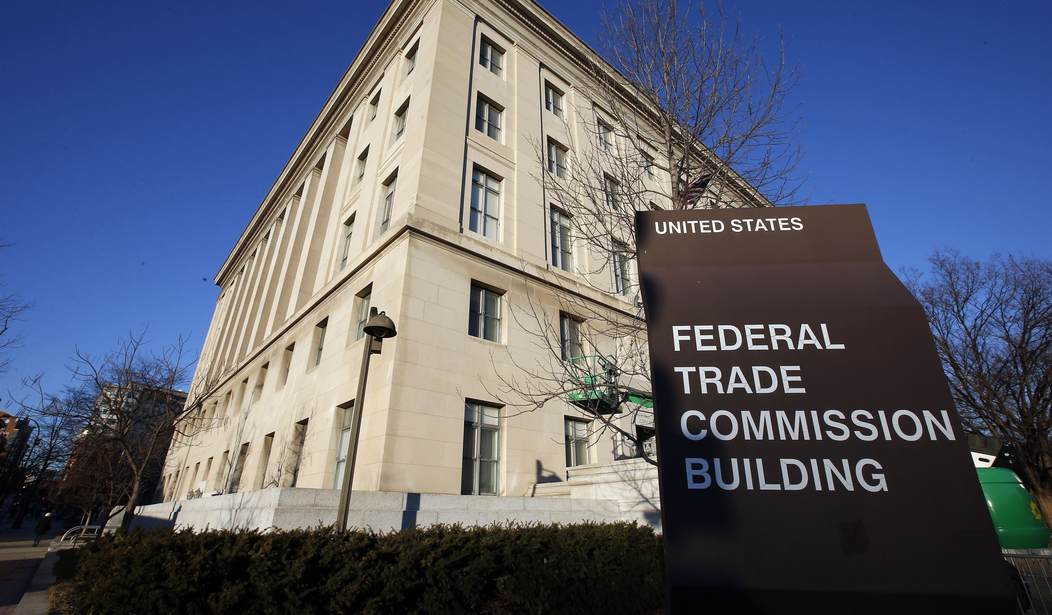The Prohibiting Anticompetitive Mergers Act, which would dramatically increase antitrust enforcement in the United States, was just introduced by a group of Democratic members of Congress. The legislation grants sweeping powers to the Department of Justice and the Federal Trade Commission (FTC) to block mergers and acquisitions worth more than $5 billion without trial. The legislation also grants power to retroactively unwind approved mergers and basically block/undo anything else that the unelected bureaucrats at these agencies believe harms workers, consumers, or small businesses. It’s a blank check for regulating society through regulatory fiat. While undoubtedly a messaging bill that won’t go anywhere soon, the message is clear: this is the future of antitrust law that the Democrats want as a tool to regulate anything and everything. Sadly, many Republicans are helping them get there by supporting a host of antitrust bills targeting “big tech.”
The underlying antitrust statutes of the US are incredibly vague considering the amount of power they hand to regulators. Even the most prominent defenders of expansive and aggressive antitrust enforcement admit this. Lacking objective and neutral criteria in antitrust for decades led to a body of case law that was “incoherent,” “contradictory and unpredictable.” In regard to antitrust enforcement, Supreme Court Justice Potter Stewart famously wrote, “The sole consistency that I can find is […] the Government always wins.”
Thus, within a precedented model of antitrust law lies the ability for the government to impose its will through regulatory fiat. Mergers, acquisitions, and all kinds of other economic activity (including new products and services) can be challenged and blocked by the government for failure to meet vague, subjective, and ever-evolving standards based on the political priorities of the prevailing party. This is the model Democrats of today are desperately trying to reinstall. This would give them the ability to use antitrust enforcement to achieve all kinds of amorphous and progressive priorities such as “social justice.” One of the sitting Democrats on the FTC has explicitly said as much when she said, “I’ve always thought we should be much more open-eyed about what values we are advancing or what priorities we are advancing with our enforcement decisions, rather than trying to make them somewhat blind.” Translation: the government should pick economic winners and losers based on political priorities. No, they shouldn’t — that is more power than the government should ever have.
Recommended
Thankfully antitrust law is no longer so arbitrary… for now. For the last half century, antitrust law has been grounded in what’s known as the consumer welfare standard. Beginning in the 1970s, academic research, famously spearheaded by Judge Robert Bork among others, began to argue for antitrust enforcement based on more measurable, objective standards surrounding the impact of mergers, acquisitions, and new offerings on consumers. The courts and antitrust enforcement agencies followed, creating the objective, consumer-focused framework of today. This monumental shift was arguably one of the greatest victories for advocates of limited government in the modern era.
The ability to hold a virtually unlimited amount of economic activity hostage is the power to implement almost whatever policy vision you want without worrying about controlling Congress. And conservatives are being walked into supporting this unchecked assault on the economy.
Many Republicans, incensed by perceived slights from Silicon Valley’s largest and most prominent firms, have signed on to a host of antitrust reforms that are designed to slowly erode the consumer welfare standard. Legislation such as the American Online Choice and Innovation Act and the Open App Markets Act, among others, almost explicitly target a handful of companies above arbitrary thresholds and ban business practices with little regard for whether or not they help or harm consumers. It is clear this is the case, because if something banned by these bills harmed consumers, then the bans would be applied universally, not just to the five or six largest firms while leaving other mega corporations engaging in the same practices unscathed. This is antithetical to the consumer welfare standard.
Even before the introduction of this legislation, Republicans were foolish to think the effort to untether antitrust law from the consumer welfare standard would stop at the borders of Silicon Valley. Now, they can no longer hide in denial. The Prohibiting Anticompetitive Mergers Act shows just how far Democrats plan to take the inch on antitrust Republicans are giving on tech. Paving the way back to “the Government always wins” would be a devastating loss for the conservative movement.

























Join the conversation as a VIP Member